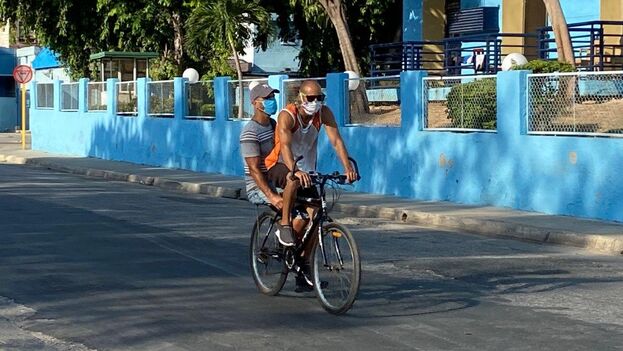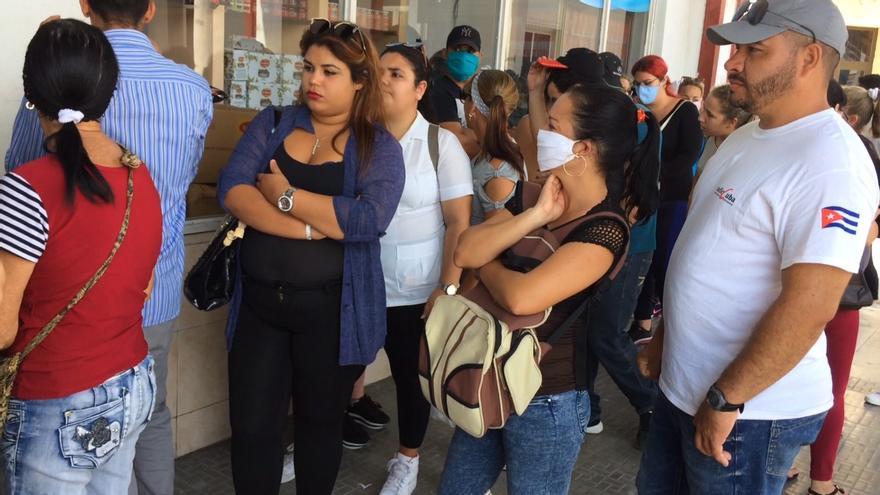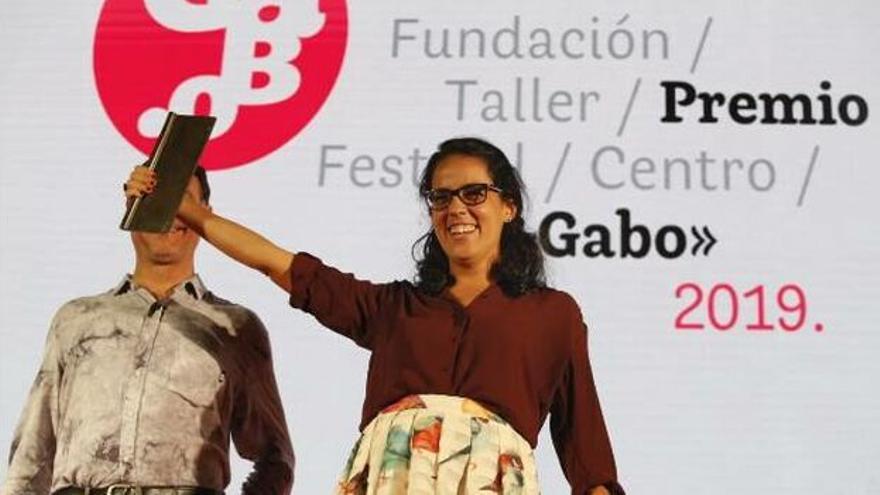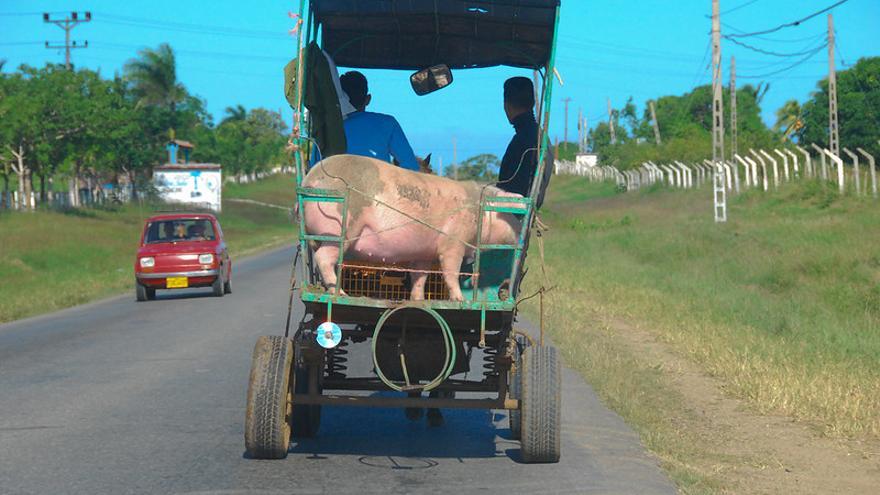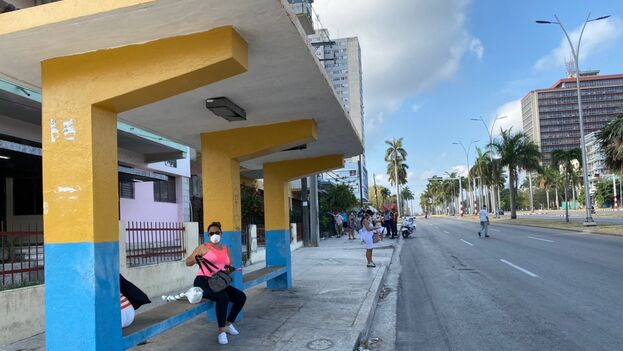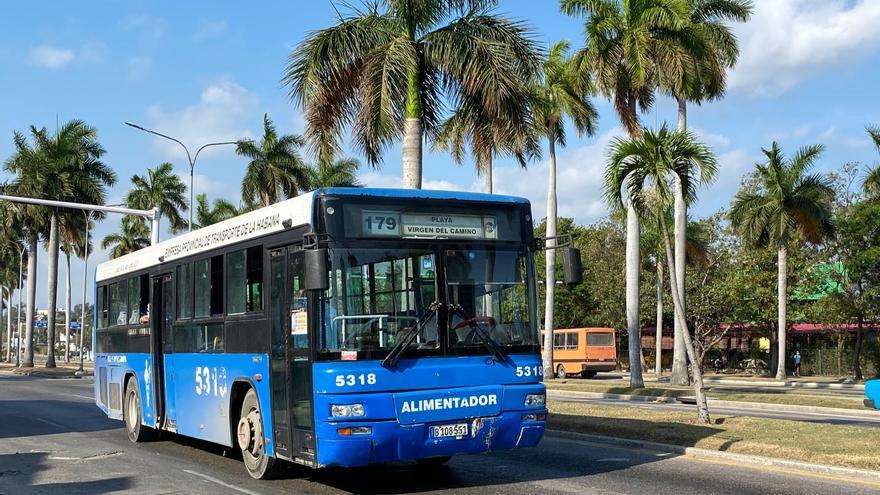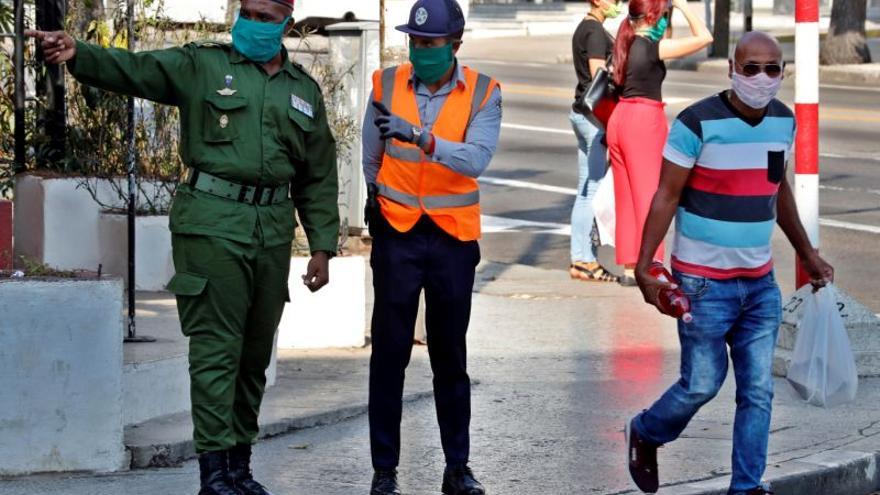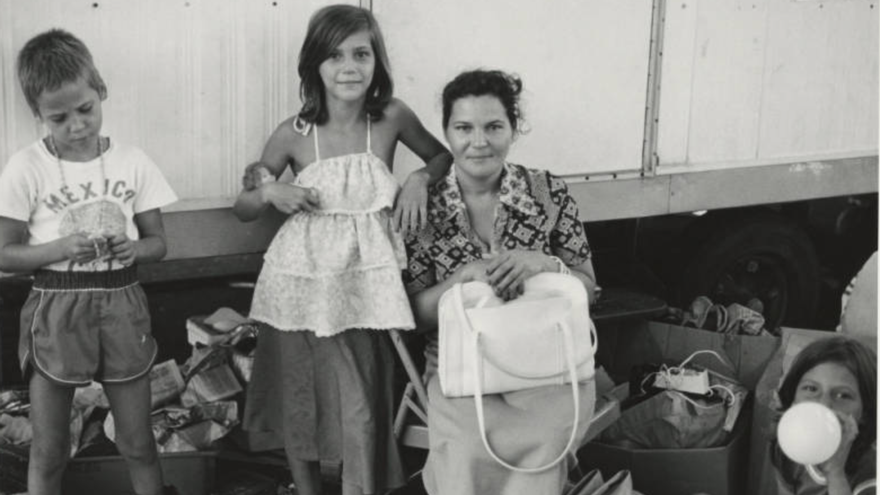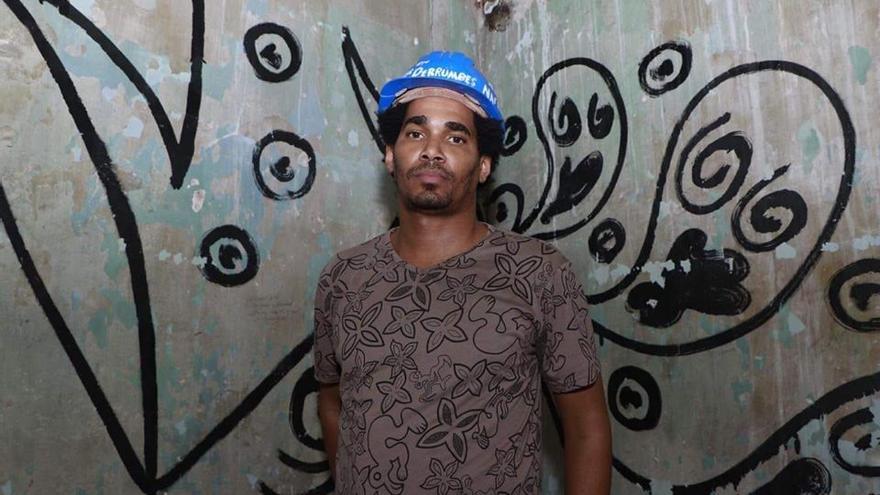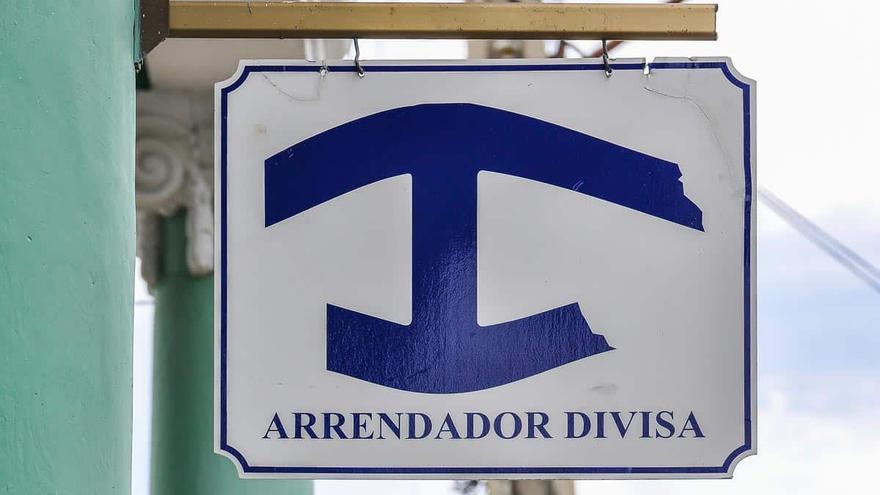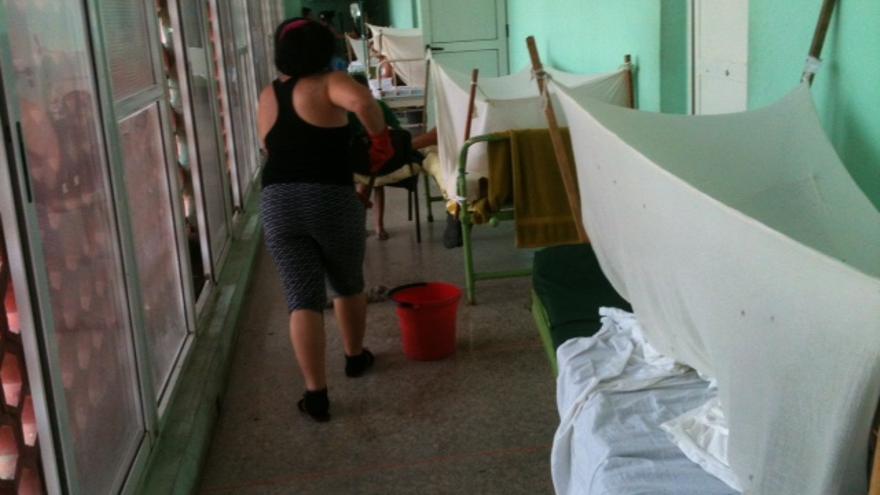“There was no detergent then,” recalls Rojas, who subsists thanks to the remittances sent by her brother from Spain. “Now we are in the same situation. Nothing catches me by surprise anymore. What worries us most is food. One can live without bathing.”
In a way, the Government’s reasoning has been similar. Faced with the tightening of the embargo and the fall in tourism, caused by the restrictive policies of the Donald Trump Administration and the collapse of Venezuela, the authorities responded by prioritizing the essentials. continue reading
In September 2019, the Minister of Internal Trade, Betsy Díaz Velasquez, ratified it: “the priority is food,” she told the state-run newspaper Granma. In a country where the population lives with chronic shortages, providing food seemed sufficient, but with the arrival on the Island of Covid-19 the essential changed. Now bathing is necessary to survive.
The virus is exposing the weaknesses of the countries it passes through, and Cuba is no exception. Although Cuba claims that its public health system is better than that of many countries in the region, and the government lacks the counterweights of a democracy (factors that helped China overcome the pandemic), hygiene and isolation recommendations are more difficult to apply than in other nations.
One of the Government’s first measures was to include a hygiene package in the ration book with three bath soaps — one for washing clothes — a tube of toothpaste and a liter of chlorine for every two people. But many doubt if this quantity is really sufficient or if it will be possible to distribute these products in all municipalities and during all the months that the pandemic lasts.
Minister Diaz Velasquez said on April 9 that washing and toilet soaps had only been distributed in 84 of the 168 municipalities in the country and that the average availability of chlorine nationally was 1.5 liters per person. Furthermore, he added that liquid detergent and toothpaste “may need to be purchased over a period of three months, depending on their availability.”
Toiletries were removed from the ration book in late 2010 and have been sold in the unrationed market since then, but in recent years they have been scarce in stores selling in national currency and often have been available only in convertible currency stores, controlled by the Army business group, whose prices are often unattainable for those who live on state wages.
Nor is it easy to comply with the measures of isolation and social distance, because getting enough food is not possible, especially for products that are distributed irregularly.
“What happens is that they give them to you a little bit at a time and you have to be aware of where they are going to put them up for sale,” says Gipsi Peña, a young woman from Santa Clara who has already spent time in three lines in April. In addition, due to the limitation of units for sale, it is common for consumers to come as a family group so they can purchase more, which increases the size of the crowds.
At a recent meeting of the Provincial Defense Council of Havana, its leaders, Luis Antonio Torres Iribar and Reinaldo García Zapata, asked for order in the lines and that the products not be concentrated in just a few points of sale. In addition, they warned that store managers who do not comply “will be judged according to legal norms in epidemic situations… You have to respect the population,” added García Zapata.
In San José de las Lajas, in the Mayabeque province, a citizen was sentenced to nine months in prison for resisting arrest after having “uttered words that violate public order,” while standing in line, according to the local press.
People with greater economic capacity have more room to maneuver, such as Mariana Álamo, a 30-year-old resident of Havana who rented rooms to tourists and bought provisions at the start of the epidemic, which now allows her to go out only to make quick purchases.
“About ten days ago they were selling chicken down the corner from the house, in the Cupet. The line was super organized, they were doing numbers, like shifts,” she says. “People were keeping their distance. They were giving out one package per person, I bought a package, whatever they had. Afterwards, we continued to buy in lines that we see are working well, not in crowds.”
But the majority of Cubans continue living day to day. For this reason, despite the fact that there are already hundreds infected on the Island, the streets look similar to usual. The only difference is in the homemade masks that have been crafted in private sewing workshops and are sold at affordable prices, between 10 and 15 Cuban pesos (50-75¢ US).
In the Puentes Grandes shopping center in Havana, on the last day of January at noon, the line was small, between 50 to 70 people, which means an average of one hour to shop. That day, there only toilet paper and hair products were available in the grooming section.
The line was organized by a worker who, every 20 minutes, distributed tickets and allowed small groups of 10 or 15 people to enter, and they had to wash their hands with the chlorinated water available at the entrance.
In addition, a patrol of four police officers supervised the area. “The man with the black pants and the yellow pullover, put on your facemask. Yes, you, don’t look behind you, it’s you,” said the agent with a loudspeaker in her hand.
At Cupet La Forestal, a few days later, the line was shorter. Five people who waited less than 30 minutes to enter and without police control. In this small store there were cleaning cloths, hair products and bath soap, at a price of between 0.35 and 0.50 CUC (Cuban convertible pesos, worth roughly a dollar each) but limited to two per person. Inspectors, according to the clerk, had passed by to verify the amount of Rubis brand soap, made in Turkey, for sale.
In the Viazul Market, in Nuevo Vedado, on April 10 there was no soap, detergent, nor toothpaste. In the grooming section there were only colognes, perfumes, and hair products.
Although there were not many people in line at this market, supplied with chicken, few were strictly following the distancing measures and there were no police or any other authority to establish order.
Meanwhile, in Santa Clara the streets begin to fill up first thing in the morning. “You have to be here before nine, to take your turn in line and to see if they got something new,” says Elizabeth Llerena, who has come from the José Martí district, on the outskirts, because “there really was nothing to buy.”
At half past nine, the crowd exceeds fifty people who crowd and gossip about the food insecurity in their homes. Inside one of the stores, which does not exceed 40 square meters, there are up to three simultaneous crowds of people: for toothpaste and soaps, for cooking oil, and for chicken thighs, which have been missing for months.
“In my house there are five of us, I live with two old men and my young son,” says Hilda González, a self-employed worker who lost her job after the ice cream parlor where she worked closed. “So, I am the one who has to go shopping and I have to do it at least three times a week. In one day I get into four different lines for different things, be it for food, soap or detergent.”
Most of the state sales points are out of stock and, where there is availability, the limitation is two units per person. With the coming of the pandemic, the number two has become a constant for Cubans.
“It’s two per person,” says the clerk of a store in which the most demanded product are the bags of Piñata instant soft drink. Before starting the day, the worker had already gotten a bag for herself and another for a friend who has two children at home with “their mouths open… that are not filled with anything,” she said.
No one complains. The only concern is the two packages of Piñata and the heat, and the dampness of one’s face under a piece of cloth. “That’s why no one protests, this is like a muzzle,” says a man in line.
After half an hour waiting in line, Angélica is about to enter the currency exchange La Luz de Yara, located in the center of the city of Holguín.
“I need to buy ground turkey and toiletries,” she says. Over age 60, this retiree is among the population at risk for the coronavirus. In Holguín, of the 57 infected so far, 77% are older than that.
Angelica lives alone with her husband, who is convalescing from an illness that prevents him from waiting in lines. Although she would have liked to stay home, she knows she has to take care of shopping. “I have no one to help me buy what I need to live on,” she says.
In reality, she is fortunate to be able to buy at a hard currency store thanks to the money she receives from her children in the United States, but since the arrival of the pandemic, the store has regulated the sales per person to five soaps,and the same number for tubes of ground turkey, the only meat available.
The measure has created discomfort among customers who protest that the small amount of products offered does not compensate for so much time waiting in line, a situation that is repeated in other stores in the city, such as Modas Praga, where the line extends more than one block.
____________
Cynthia de la Cantera is a journalist based in Havana who collaborates with Yuca Byte and Tremenda Nota.
Laura Rodríguez Fuente is a journalist based in Santa Clara who collaborates with Tremenda Nota and Cubanet.
Fernando Donate is a journalist based in Holguín who collaborates with Cubanet.
_______________
COLLABORATE WITH OUR WORK: The 14ymedio team is committed to practicing serious journalism that reflects Cuba’s reality in all its depth. Thank you for joining us on this long journey. We invite you to continue supporting us by becoming a member of 14ymedio now. Together we can continue transforming journalism in Cuba.
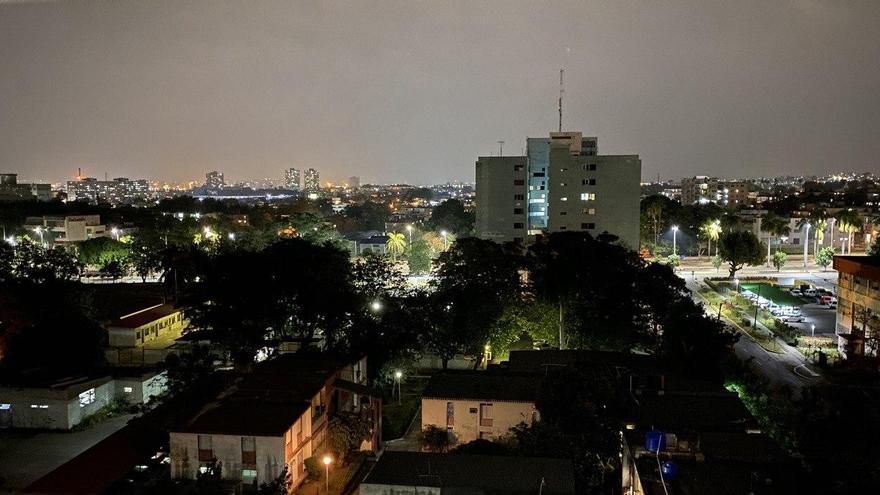
![]() 14ymedio, Havana, April 19th, 2020 — Cubans fear that added to the Covid-19 crisis on the Island will be electrical black-outs due to exhaustion of fuel supply, a concern that has increased this week when the authorities made an appeal to save energy on account of the increased consumption due to confinement and the elevated temperatures.
14ymedio, Havana, April 19th, 2020 — Cubans fear that added to the Covid-19 crisis on the Island will be electrical black-outs due to exhaustion of fuel supply, a concern that has increased this week when the authorities made an appeal to save energy on account of the increased consumption due to confinement and the elevated temperatures.
